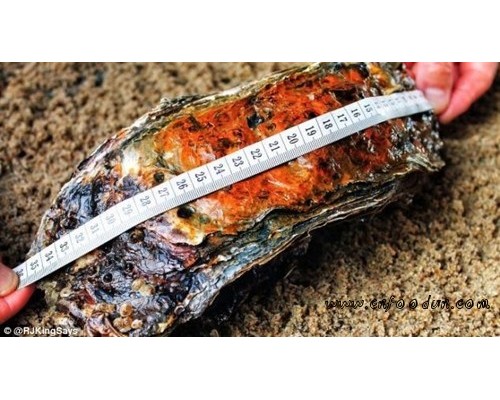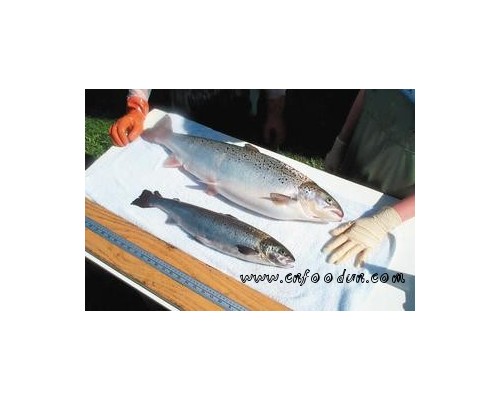原文报道:
Multi-Government Agency Response to the Gulf of Mexico Oil Spill
The Food and Drug Administration (FDA) is working with the National Oceanic and Atmospheric Administration (NOAA) National Marine Fisheries Service, the Environmental Protection Agency (EPA), other Federal agencies, and several state authorities in the regions affected by the recent oil spill. FDA continues to closely monitor this developing situation and its potential impact on the safety of seafood harvested from the area.
FDA's Role In Ensuring Seafood Safety
FDA operates a mandatory safety program for all fish and fishery products under the provisions of the Federal Food, Drug and Cosmetic Act, the Public Health Service Act, and related regulations. The FDA program includes research, inspection, compliance, enforcement, outreach and the development of regulations and industry guidance. FDA works closely with NOAA and the states whenever commercial fishing waters are closed for public health reasons and again when they are reopened to harvest.
Seafood Safety Notes
Here is some key information on the safety of seafood from the gulf.
- Although crude oil has the potential to taint seafood with flavors and odors caused by exposure to hydrocarbon chemicals, the public should not be concerned about the safety of seafood in stores at this time.
- Fish and shellfish harvested from areas unaffected by the closures are considered safe to eat.
Call 1-888-INFO-FDA with questions or concerns about seafood or to report any seafood you have purchased that you suspect of being contaminated with oil.
Monitoring and Surveillance
Federal and state officials are monitoring the waters from which seafood is harvested and will act to close areas contaminated by the oil spill to fishing and shellfish harvesting. NOAA has the authority to close Federal waters to commercial fishing and states have the authority to close waters within their jurisdiction.
NOAA has already closed a large area of the Gulf of Mexico to commercial fishing and some state molluscan shellfish beds have been closed in anticipation of the oil nearing the shoreline. Closely monitoring and, if warranted, closing harvest waters which could be exposed to the oil spill should prevent unsafe seafood from reaching the market. If, despite these steps, adulterated seafood is found on the market, both the FDA and the states have the authority to seize such product and remove it from the food supply.
FDA has implemented a surveillance sampling program of seafood products at Gulf Coast area primary processing plants. FDA is currently targeting oysters, crabs and shrimp, which could retain contaminants longer than finfish. This sampling will provide verification that seafood being harvested is safe to eat.
Fish and shellfish harvested from areas unaffected by the closures are considered safe to eat.
Questions and Answers
Q: Is seafood harvested in the Gulf Coast area safe?
A: Fish and shellfish harvested from areas unaffected by the closures are considered safe to eat. NOAA is closely monitoring the surface and subsurface movement of petroleum and is expanding the closed area as needed. The states are also closing harvest waters under their jurisdiction as needed. There is no reason to believe that any contaminated product has made its way to the market. Closing harvest waters which could be exposed to the oil is the best way to protect the public from potentially contaminated seafood, because it keeps the product from entering the food supply.
Closing harvest waters which could be exposed to the oil is the best way to protect the public from potentially contaminated seafood, because it keeps the product from entering the food supply.
Q: How will the Federal government and the states determine that harvest waters closed due to contamination from the oil spill can be re-opened?
A: FDA and NOAA have agreed on a protocol to determine when closed federal harvest waters can be re-opened. Both agencies feel confident that when this protocol is followed, the seafood harvested from the re-opened areas will be fit for consumption. Under the protocol harvest waters will not re-open until oil from the spill is no longer present and the seafood samples from the area successfully pass both sensory analysis by trained experts and a chemical analysis to ensure there are no harmful oil residues. FDA and NOAA have shared this protocol with the states and encouraged them to use it to affirm the safety of state harvest waters prior to re-opening.
Q: How will FDA assure the safety of seafood after the fishing and shellfish harvesting areas are allowed to re-open?
A: Federal and state waters closed due to contamination from the oil spill will only be re-opened for harvesting after it has been determined that seafood harvested from those areas is safe for consumption. The FDA oversees a mandatory safety program for all fish and fishery products under the provisions of the Federal Food, Drug and Cosmetic Act, The Public Health Service Act, and related regulations. If adulterated seafood is found on the market, both the FDA and the states have the authority to seize the product and remove it from the food supply.
Q: Who is responsible for the closing of federal and state harvest waters?
A: NOAA has the authority to close federal waters to commercial fishing and states have the authority to close waters within their jurisdiction. The FDA works closely with NOAA and the states whenever commercial fishing waters are closed for public health reasons and again when they are re-opened to harvest.
Q: How can I find out about closures?
A: NOAA and the Coast Guard are monitoring closed areas to ensure that fisherman do not fish within them. To view a current map of the areas closed to fishing (reviewed and updated daily), go to Deepwater Horizon/BP Oil Spill.
Q: What affect will the oil dispersant have on seafood in the area?
A: Available information indicates that the dispersants being used to combat the oil spill do not accumulate in seafood and therefore there is no public health concern from them due to seafood consumption. FDA will continue to monitor the use of dispersants and evaluate any changes in their use or composition.
详情见:http://www.fda.gov/Food/FoodSafety/Product-SpecificInformation/Seafood/ucm210970.htm







